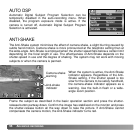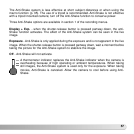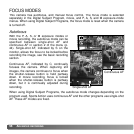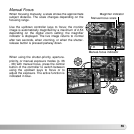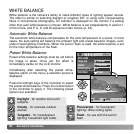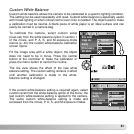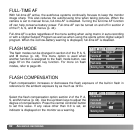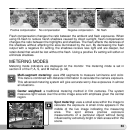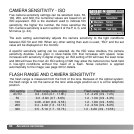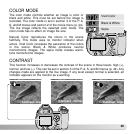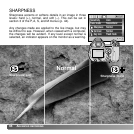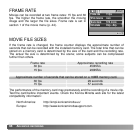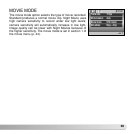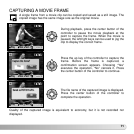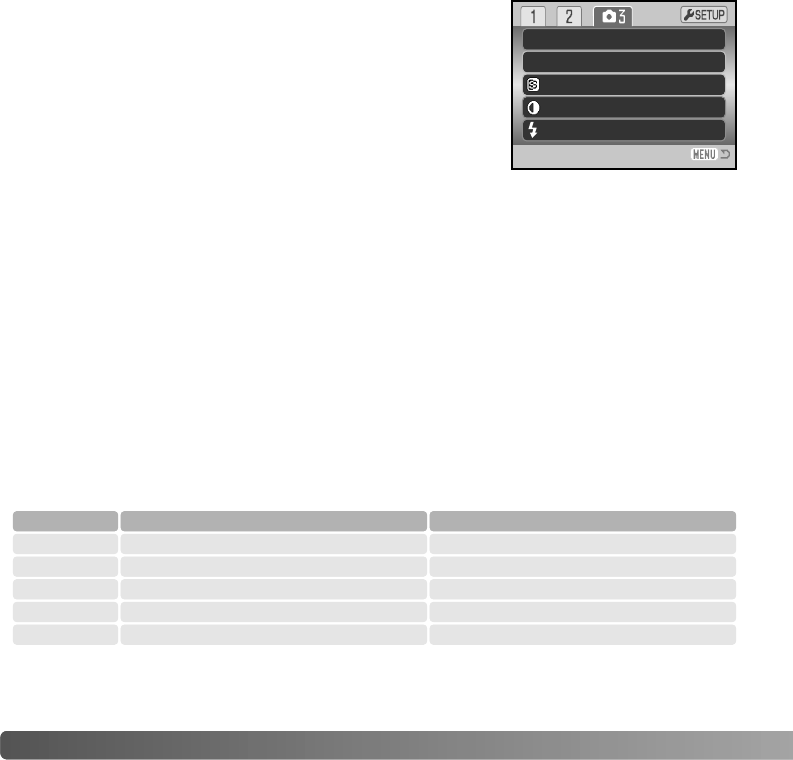
64 A
DVANCED RECORDING
ISO setting
AUTO
50
0.2 - 3.6m (0.7 - 11.8ft.)
Flash range (telephoto)
1.2 - 2.2m (3.9 - 7.2ft.)
0.2 - 2.0m (0.7 - 6.6ft.) 1.2 - 1.3m (3.9 - 4.3ft.)
The flash range is measured from the front of the lens. Because of the optical system,
the flash range is not the same at the lens’ wide-angle position as it is at the telephoto
position.
FLASH RANGE AND CAMERA SENSITIVITY
Five camera sensitivity settings can be selected: Auto, 50,
100, 200, and 320; the numerical values are based on an
ISO equivalent. ISO is the standard used to indicate film
sensitivity: the higher the number, the more sensitive the
film. Camera sensitivity is set in section 3 of the P, A, S, and
M menus (p. 44).
100
200
320
0.28 - 2.9m (0.9 - 9.5ft.)
0.4 - 4.0m (1.3 - 13.1ft.)
0.5 - 5.1m (1.7 - 16.7ft.)
1.2 - 1.8m (3.9 - 5.9ft.)
1.2 - 2.5m (3.9 - 8.2ft.)
1.2 - 3.2m (3.9 - 10.5ft.)
Flash range (wide angle)
The auto setting automatically adjusts the camera sensitivity to the light conditions
between ISO 50 and 160. When any other setting than auto is used, “ISO” and the set
value will be displayed on the monitor.
A specific sensitivity setting can be selected. As the ISO value doubles, the camera
sensitivity doubles. Like grain in silver-halide film that increases with speed, noise
increases with sensitivity in digital imaging; an ISO setting of 50 will have the least noise
and 320 will have the most. An ISO setting of 320 may allow the camera to be hand-held
in low-light conditions without the need of a flash. Noise reduction is applied
automatically to the image; see page 39 for details.
Sensitivity
Color mode
Contrast
Auto
NaturalColor
Normal
Normal
Sharpness
Key func. Flash mode
CAMERA SENSITIVITY - ISO



